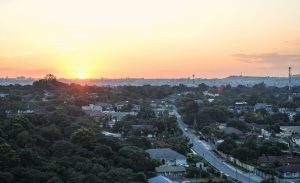
NASA’s offering $3 million to anyone who can invent a way to “recycle” 96 bags of poop astronauts left on the moon
NASA is seeking creative solutions to "recycle" or repurpose the dozens of bags of human waste left on the moon during the Apollo missions
Read More
Comment
0

Zambia’s growing sexual violence problem is a spiritual crisis, says Bishop of Lusaka
“This is not just a social issue: it is a moral and spiritual crisis. We call on the nation to stand together in protecting the vulnerable and ensuring justice prevails.”
Read More
Comment
0

Stronger naira leads to nearly 50% drop in Nigeria-Europe flight fares
“Whatever ticket price you are seeing that looks cheap must either be a promo fare or because the rate of exchange has stabilised"
Read More
Comment
0

Kwara CP vows to fight crime with community support
“We will work closely with all stakeholders to keep Kwara safe. Security is not the job of the police alone—it is a collective responsibility,” he noted.
Read More
Comment
0

Man United frustrated by late Lyon equaliser in 2-2 draw
Manchester United were left ruing a late equaliser conceded against Lyon on Thursday night, having been on course to take an aggregate lead back to Old Trafford next week.
Read More
Comment
0

We don’t need ₦1 to be $1. The current exchange rate is just fine.
In reality, if ₦1 = $1, Nigerian goods would become more expensive for other countries to buy. That means fewer exports, less foreign income, and job losses in industries that rely on exports.
Read More
Comment
0

‘Truth is always a crime’: Eedris reacts to NBC ban on new single
Veteran Nigerian hip-hop artist and social activist, Eedris Abdulkareem, has accused the Nigerian Broadcasting Commission (NBC) of banning his latest single, “Tell Your Papa”, a politically charged track that he says delivers “truth and...
Read More
Comment
0

Economist warns Nigeria’s economy at risk if oil prices plunge
“If crude prices drop to $40, Nigeria will not survive it," stated Mr. Paul Alaje, an economist...
Read More
Comment
0

Eedris Abdulkareem slams FG over ban on “Tell Your Papa”
The NBC, in a memo dated April 9, 2025, declared the song “Not To Be Broadcast (NTBB)”, citing Section 3.1.8 of the Nigeria Broadcasting Code which prohibits content deemed offensive.
Read More
Comment
0

Bauchi: Mob hacks man to death ‘for stealing dog’
The Bauchi State Police Command has begun a manhunt for a mob accused of carrying out jungle justice on one Dokagk Danladi, who was alleged to have stolen a dog.
Read More
Comment
0